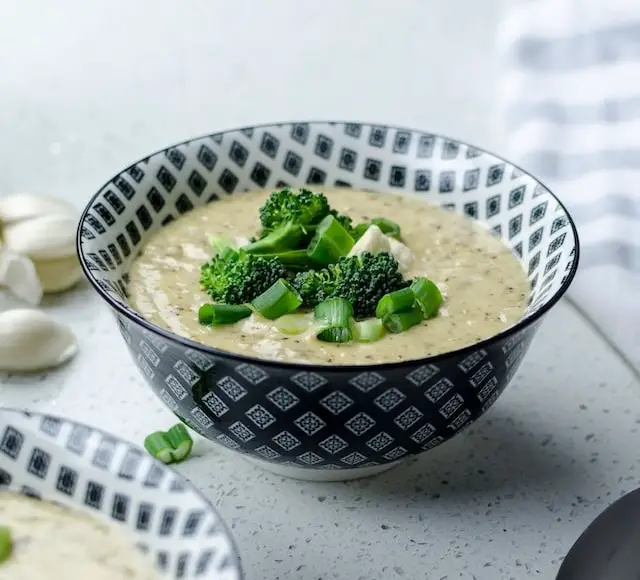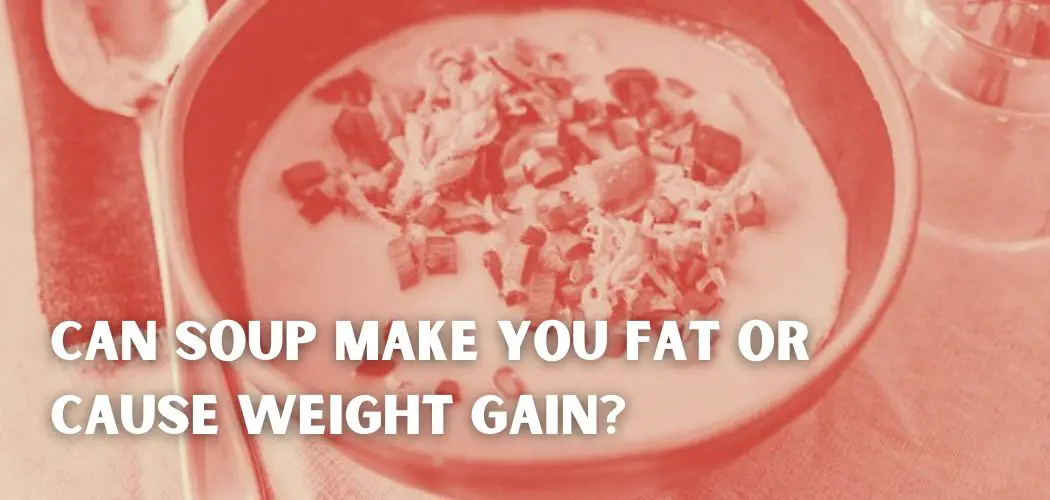A steaming bowl of soup might be the most satisfying thing in the entire world. Especially on a freezing winter day, there may be no better way to warm up.
During the winter, soup can always provide toasty comfort, whether it’s a chicken noodle soup made with broth or a rich and creamy bisque.
But what if this becomes your preferred meal so frequently that you find yourself eating soup daily?
For all you soup lovers, we wanted to determine how nutritious or bad this warming cuisine is.
We consulted a few nutritionists in order to clarify what occurs when you take soup on a daily basis and choose to consume soup every day.
Contents
Low in Calories
The good news is that if you are carefully selecting the ingredients for your soup, you can guarantee that you are getting more nutrients for fewer calories than with most other meals.
Recently, some studies have demonstrated that soup contributes to weight loss, weight maintenance, and a reduction in the risk of obesity.
Many renowned nutrition experts feel that soup has the potential to be a nutritious food source.
According to a nutritionist, if a soup is broth-based with plenty of beans and vegetables, it’s an excellent way to get antioxidants, fiber, vitamins C and A, and potassium. The nutritional value of broth-based soups is exceptional.

By eschewing creamy soups in favor of broths containing vegetables, lentils or beans, we fill our tanks with an abundance of fiber and nutrients without consuming many calories.
An expert also added that the manner in which we prepare soup can also help us consume fewer calories throughout the week.
They are simple to prepare, especially when using a pressure cooker or slow cooker, and can be produced in large quantities.
Preparing a large pot of nutrient-dense hot steaming soup on the weekend is an excellent way to ensure a nutritious, nutrient-dense lunch for the weekend.
Feel Fuller Instantly
If you’ve ever wondered why people typically consume salad or soup before the main course, you’re not alone.
A cup or bowl of soup before your main dish may help you feel more satisfied, depending on the type of soup you’re eating.
Foods with a higher water content may help you feel fuller sooner, claims a reputable nutritionist.
Starting a meal with a salad or soup, both of which are low-calorie and high-water-volume foods, can keep you from overeating.
This could imply that if you enjoy a side of soup with your supper, you may consume fewer calories overall while remaining completely content.
Benefits
In addition to promoting rapid weight loss, soup may also offer the following benefits:
Increased water consumption
They can increase daily water consumption. More water may help with weight loss efforts in addition to supporting a number of vital bodily functions, according to research.
Improved vegetable consumption
Vegetables contain important vitamins and helpful plant compounds. In addition, increasing intake is associated with a decreased risk of weight gain and obesity.
Promote plant-based diets
Some, such as the bean soup diet, can facilitate the shift to a more plant-based diet. These diets have been associated with a decreased risk of obesity and promote weight loss.
Increased fiber consumption
As they are frequently rich in vegetables and may also contain beans, whole grains, or fruits, these diets can provide a respectable quantity of fiber, which may help suppress hunger.

Keep in mind, however, that 1 or 2 weeks of increased fiber, vegetable, and water consumption are unlikely to have significant long-term effects on health and weight unless following the diet helps you make permanent lifestyle changes.
Too Much Saturated Fat
There is nothing better than a bowl of delicious creamy clam chowder or broccoli cheddar soup. Unfortunately, this sort of soup can be extremely high in saturated fat and calories.
Almost every nutritionist agreed that when selecting a soup, you should be aware that cream-based soups have significantly more fat.
They also said that it’s better to consume soups that are broth-based rather than cream-based soups in order to reduce fat intake.
And soups that are made with heavy cream rather than broth frequently contain a lot of calories and unhealthy saturated fat.
Downsides
Most soup diets are not intended to be followed for more than ten days, with the exception of Greger’s bean soup diet.
Because of this, it is likely that you will gain back any weight you lost on the diet if you do not have a more sustainable diet to switch to.
In addition, research suggests that when you lose a substantial amount of weight rapidly or severely restrict your calorie intake, your metabolic rate decreases. This indicates that you will be burning fewer calories daily than previously.

As a result, it might be more challenging to maintain your weight loss once you stop the diet due to your slower metabolism.
In addition, nutritional deficits are a problem because soup diets like the sacred heart diet and cabbage soup diet are highly limited in the types and quantities of foods they permit.
While eating a restricted diet for five to ten days it is unlikely to cause substantial nutrient shortages, especially if a multivitamin is taken, drastically cutting calorie intake can result in side effects such as weakness, dizziness, and weariness.
Conclusion
Soups have gained popularity due to their potential to facilitate significant weight loss in a few days. So, it is clear that soup won’t make you fat, considering all the information given above by experts.
However, the majority of weight loss on these diets is due to water loss rather than fat loss.
In addition, because these diets are intended for short-term use, you will likely regain any weight you manage to lose.
For long-term weight reduction success, you are likely best off simply adding soups into a balanced, less restricted weight loss eating plan. Soups may help reduce hunger and daily caloric consumption.
